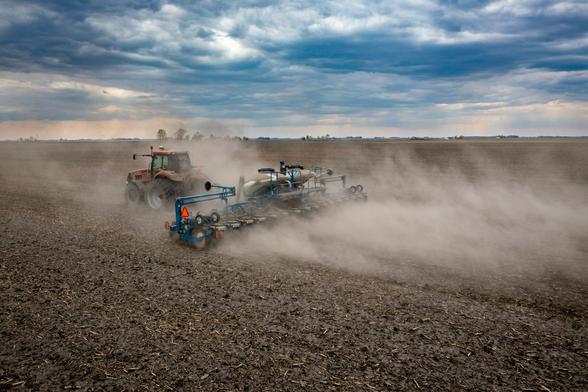2025-10-07 12:52:49
Picture the human body. Zoom in on a single cell. It lives for a while, then splits or dies, as part of a community of cells that make up a particular tissue. This community lives together for many many cell-lifetimes, each performing their own favorite function and reproducing as much as necessary to maintain their community, consuming the essential resources they need and contributing back what they can so that the whole body can live for decades. Each community of cells is interdependent on the whole body, but also stable and sustainable over long periods of time.
Now imagine a cancer cell. It has lost its ability to harmonize with the whole and prioritize balance, instead consuming and reproducing as quickly as it can. As neighboring tissues start to die from its excess, it metastasizes, always spreading to new territory to fuel its unbalanced appetite. The inevitable result is death of the whole body, although through birth, that body can create a new fresh branch of tissues that may continue their stable existence free of cancer. Alternatively, radiation or chemotherapy might be able to kill off the cancer, at great cost to the other tissues, but permitting long-term survival.
To the cancer cell, the idea of decades-long survival of a tissue community is unbelievable. When your natural state is unbounded consumption, growth, and competition, the idea of interdependent cooperation (with tissues all around the body you're not even touching, no less) seems impossible, and the idea that a tissue might survive in a stable form for decades is ludicrous.
"Perhaps if conditions were bleak enough to perfectly balance incessant unrestrained growth against the depredations of a hostile environment it might be possible? I guess the past must have been horribly brutal, so that despite each tissue trying to grow as much as possible they each barely survived? Yes, a stable and sustainable population is probably only possible under conditions of perfectly extreme hardship, and in our current era of unfettered growth, we should rejoice that we live in much easier times!"
You can probably already see where I'm going with this metaphor, but did you know that there are human communities, alive today, that have been living sustainably for *tens, if not hundreds of thousands of years*?
#anarchy #colonialism #civilization
P.S. if you're someone who likes to think about past populations and historical population growth, I cannot recommend the (short, free) game Opera Omnia by Stephen Lavelle enough: https://www.increpare.com/2009/02/opera-omnia/
2025-11-07 11:00:01
Automatically describe data and models as text using the {report} package. #rstats
2025-10-07 04:54:24
Last month, Judge Goodstein had temporarily blocked the state’s election commission from releasing its voter files to the Department of Justice,
a decision that was openly criticized by Assistant Attorney General for Civil Rights Harmeet Dhillon
and later reversed by the state Supreme Court.
The DOJ had sought the information, including names, addresses, driver’s license numbers, and social security numbers,
of over three million registered voters as part of Trump’s M…
2025-09-06 10:00:45
"Report links world’s top banks to social & environmental harms from mining"
#Banks #Finance #Environment
2025-11-06 18:50:18
A survey of 3,000 people in six countries: streaming viewers average 14 minutes looking for content to watch; 45% say the market is oversaturated with streamers (Matthew Keys/TheDesk.net)
https://thedesk.net/2025/11/gracenote-global-streaming-report/
2025-10-07 10:08:02
Social bias is prevalent in user reports of hate and abuse online
Florence E. Enock, Helen Z. Margetts, Jonathan Bright
https://arxiv.org/abs/2510.04748 https://
2025-10-07 09:24:12
Observation of undepleted phosphine in the atmosphere of a low-temperature brown dwarf
Adam J. Burgasser (UC San Diego), Eileen C. Gonzales (SFSU), Samuel A. Beiler (U. Toledo), Channon Visscher (Dordt U, Space Science Institute), Ben Burningham (U. Hertfordshire), Gregory N. Mace (U. Texas Austin), Jacqueline K. Faherty (AMNH), Zenghua Zhang (Nanjing U.), Clara Sousa-Silva (Bard College, Institute of Astrophysics,Space Sciences), Nicolas Lodieu (IAC, La Laguna U.), Stanimir A. Metchev…
2025-09-05 12:01:35
BTW - that CBC article used a lot of numbers from this report, which because it's all numbers is awesome. Some tidbits:
- The number of farms over 3,500 acres has nearly doubled in 20 years.
- 41.3% of Canadian farmland is rented.
- From 1971 to 2021, the farm population declined by 62.2%, from 1 in 14 Canadians to 1 in 61.
- Farm debt has more than doubled in the last 20 years, from $43B in 2002 to $138.8B in 2022. That is currently 10x the size of net farm income.
- In 2021, 96,043 tonnes of pesticides were sold for agricultural use – more than three times the amount sold in 1991.
#Statistics #Farming
https://www.nfu.ca/wp-content/uploads/2024/03/Canadian-Ag-by-the-Numbers-2024.pdf
2025-11-06 16:00:43
"Climate change inaction costs millions of lives each year, report warns"
#Climate #ClimateChange
https://
2025-08-08 02:58:50





